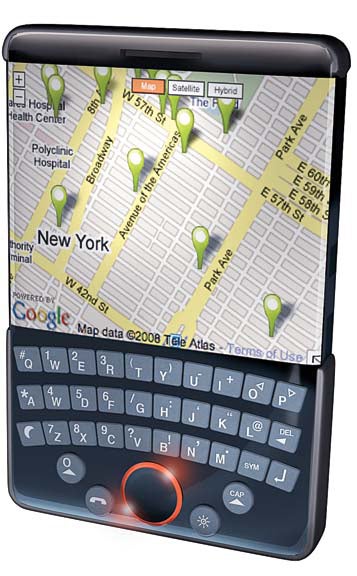The Future of Mobile Computing
A college class mines the Android for a set of apps that will change the way we phone

When MIT professor Hal Abelson heard that Google was about to release the software-development kit for its free, open-source Android mobile-phone operating system, he immediately decided to teach a class that would design programs for it. “Android is about to change people’s experience of what they can do with computers,” he says, because the computers in our cellphones will soon be the ones we use the most. These seven applications, developed by students in Abelson’s class, show what Android-equipped phones will be able to do.
Loco
Loco will track your friends on a map by picking up GPS signals from other Android phones, so you can search for nearby parties.
Locale
Set your phone to change settings based on your location. You can make your ringer automatically switch to “vibrate” when you’re at work and then back to “normal” when you’re at home. Google has singled out this application for funding.
Geolife
This app will send you reminders based on location instead of time. For example, as you approach a grocery store, it will remind you to pick up milk.
Snap
Like a location-based, community-oriented Digg, Snap will show you the most popular locations (museums, stores and so on) near you, based on user submissions and feedback.
Re:Public
Re:Public will let you browse profiles of other users in the neighborhood, see what events they’re attending, and track their their location in real time.
Kei
By communicating with Bluetooth-enabled hardware in your car, Kei will unlock your car door and start the vehicle without a key.
Flare
Flare allows you to track mobile employees, such as food deliverers, in real time through their Android phones.